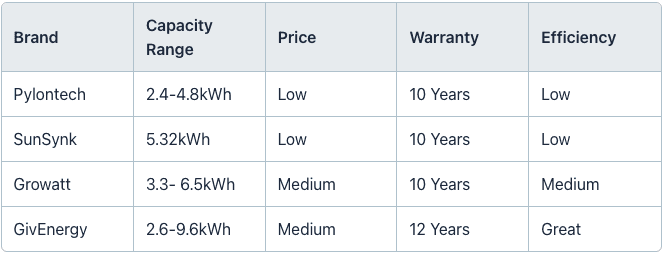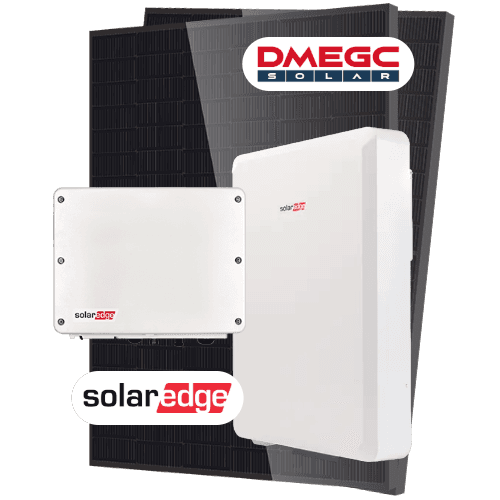
Our Installs Rated 4.6
Jan 23, 2024
In the UK, where solar energy is gaining momentum, a big question for many homeowners is: Are solar storage batteries worth it? This article aims to give you a straightforward answer.
Solar batteries store extra energy from your solar panels, providing power even when the sun isn’t shining.
But do the benefits outweigh the cost?
We’re here to explore how these batteries work, their cost, the potential savings, and their environmental impact, all tailored for UK homeowners.
A Solar Battery?
Solar storage batteries are key for UK homes using solar panels. They store extra solar power for when you need it most, like during those cloudy days or at night.
There are mainly two types: lithium-ion and lead-acid. Lithium-ion ones are pricier but last longer and are more efficient, making them a top choice for many.
These batteries help you make the most of your solar panels, ensuring you’ve got power even when the sun isn’t out.
Analysing the costs
In the UK, the price for a solar battery system starts on average is about £4,500.
The cost varies depending on the battery's capacity and type. While lithium-ion batteries are more expensive, they offer better longevity and efficiency.
It's not just the battery you're paying for. Installation and any additional equipment needed for your solar setup can add to the cost.
But remember, the investment isn't just about the initial price. It's about the long-term savings on your energy bills.

How much can I save each year?
Investing in a solar battery can lead to significant financial savings over time.
For a standard three-bed house in the UK with a solar panel and battery system, the expected annual savings amount to approximately £669. This figure includes savings from reduced grid electricity usage and earnings from exporting surplus power.
Selling your Electricity?
Under the SEG, you can earn up to 15p for every kWh exported, as seen with providers like Octopus Energy or Utility Warehouse.
However, with the cost of grid electricity at 28.62p per kWh, storing excess solar energy for later use is more cost-effective than selling it.
An average three-bedroom home equipped with the latest high-tech solar panel generates about 2,645 kWh yearly.
This leads to a saving of £537 on energy bills.
This is a combination of £379 saved from grid purchases and £159 earned through SEG. By utilising the extra solar energy instead of selling it, you gain an additional saving of £132.
The Hidden Benefits You Didn't Know!
Investing in solar batteries is a strategic move to future-proof your home against fluctuating energy rates
With a fixed source of power, you're less susceptible to the unpredictable rises in electricity costs, providing a level of financial predictability and security.
By generating and storing your energy, you're locking in your energy rates, insulating yourself from market volatility.
Being grid-independent also means a reduced impact of grid failures, energy shortages, or peak-time charges
In the context of rising energy prices, owning solar batteries can offer substantial long-term financial and ecological benefits
What Solar Battery Should I Get?
Below are some of the best lithium solar panel battery brands on the market, their cost, warranty and capacity.

So is it worth it? - Our take
If you can afford them, solar batteries are worth considering.
They're a great choice for those aiming to minimise their reliance on grid electricity. However, indeed, the upfront cost is still a significant barrier for many, though this is gradually changing.
In essence, for those prepared to invest in solar technology, the long-term benefits, make it a compelling choice.
For those ready to invest in a solar battery or system, you can simply send us a message, and a member of our team will get in touch.




